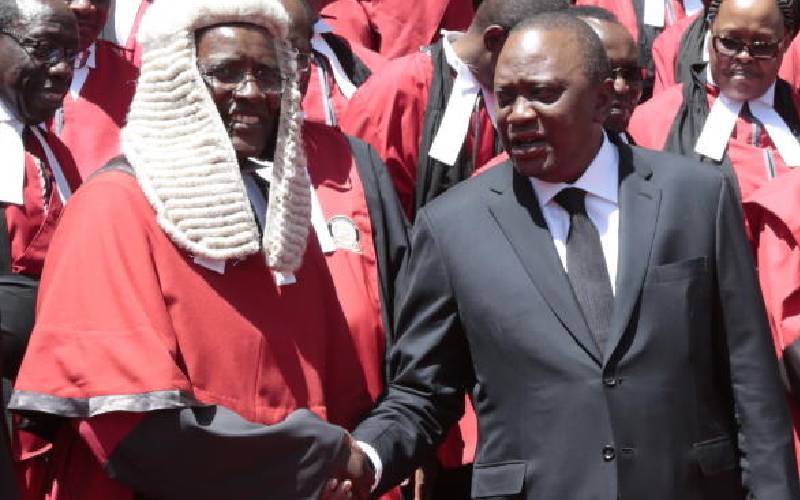
Former Chief justice David Maraga(left) and President Uhuru Kenyatta during the official presentation administration of justice report at supreme court in 2019.[Standard]
I have followed, sometimes with cringing incredulity, the ongoing interviews for the Chief Justice position by the Judicial Service Commission. Some of the candidates have been refreshing, some an outright disappointment and others an unmitigated disaster! To its credit, the team chaired by the indefatigable Prof Olive Mugenda has tried to apply fairness to each candidate, even where it was clear the specific train was long off the rails.